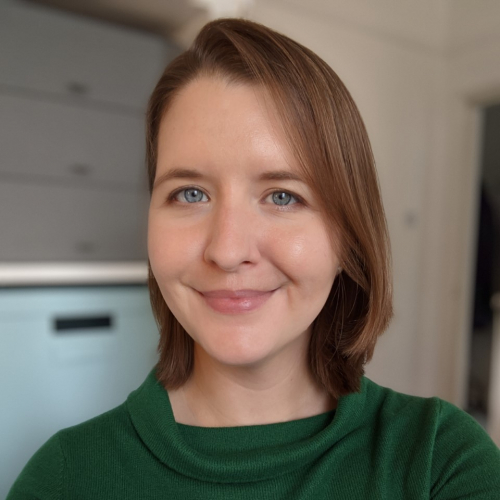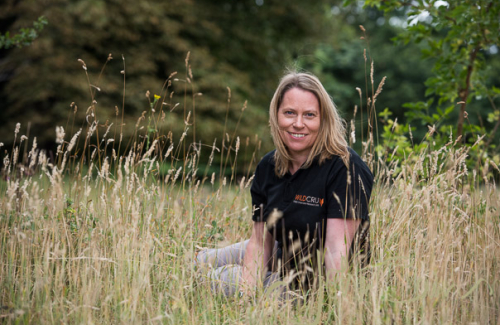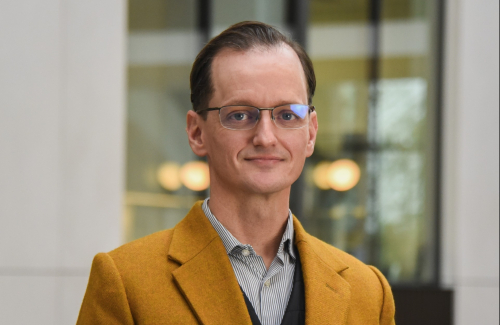
Dr Molly Grace
I joined the Oxford community in 2017, as a NERC Knowledge Exchange Fellow in the Department of Biology and a member of the Interdisciplinary Centre for Conservation Science. In 2020, I took a two-year teaching post as a Fellow by Special Election at Wadham, and in 2022 I became a Lecturer in the Department of Biology and a retained Lecturer at Pembroke. In my current roles, I give lectures and tutorials to all three years of the programme, with a focus on conservation but including theoretical ecology, animal behaviour, statistics, and "soft" skills (writing, presentations).
My research is all about defining and measuring species recovery. Conservation biology has long focused on predicting and avoiding extinction, such that (until recently), there was no standard way to track species' progress toward recovery. I have helped lead the development of the IUCN Green Status of Species, which is a globally applicable framework to describe species recovery status and which complements the world-renowned IUCN Red List of Threatened Species. The Green Status of Species draws on fundamental concepts in ecology- e.g., species functionality, viability, variability, and historic distribution.
Prior to arriving in Oxford, I completed a PhD in Conservation Biology at the University of Central Florida (Orlando, USA), where my research focus was in transportation ecology (lethal and sub-lethal impacts of roads on wildlife ecology and behaviour).
Articles published since arriving at Oxford: https://www.biology.ox.ac.uk/people/dr-molly-grace
Google Scholar profile (full list): https://scholar.google.com/citations?user=Rz2j6RMAAAAJ&hl=en
Public talks:
The IUCN Green Status of Species: how to thrive not just survive
Wednesdays for the Planet | Europe Reclaims Biodiversity | Molly Grace
When I am not thinking about science, I am an avid consumer of the arts, and you can sometimes catch me onstage as a member of the Oxford Operatic Society.
News from Biology
Dr Molly Grace

I joined the Oxford community in 2017, as a NERC Knowledge Exchange Fellow in the Department of Biology and a member of the Interdisciplinary Centre for Conservation Science. In 2020, I took a two-year teaching post as a Fellow by Special Election at Wadham, and in 2022 I became a Lecturer in the Department of Biology and a retained Lecturer at Pembroke. In my current roles, I give lectures and tutorials to all three years of the programme, with a focus on conservation but including theoretical ecology, animal behaviour, statistics, and "soft" skills (writing, presentations).
My research is all about defining and measuring species recovery. Conservation biology has long focused on predicting and avoiding extinction, such that (until recently), there was no standard way to track species' progress toward recovery. I have helped lead the development of the IUCN Green Status of Species, which is a globally applicable framework to describe species recovery status and which complements the world-renowned IUCN Red List of Threatened Species. The Green Status of Species draws on fundamental concepts in ecology- e.g., species functionality, viability, variability, and historic distribution.
Prior to arriving in Oxford, I completed a PhD in Conservation Biology at the University of Central Florida (Orlando, USA), where my research focus was in transportation ecology (lethal and sub-lethal impacts of roads on wildlife ecology and behaviour).
Articles published since arriving at Oxford: https://www.biology.ox.ac.uk/people/dr-molly-grace
Google Scholar profile (full list): https://scholar.google.com/citations?user=Rz2j6RMAAAAJ&hl=en
Public talks:
The IUCN Green Status of Species: how to thrive not just survive
Wednesdays for the Planet | Europe Reclaims Biodiversity | Molly Grace
When I am not thinking about science, I am an avid consumer of the arts, and you can sometimes catch me onstage as a member of the Oxford Operatic Society.

